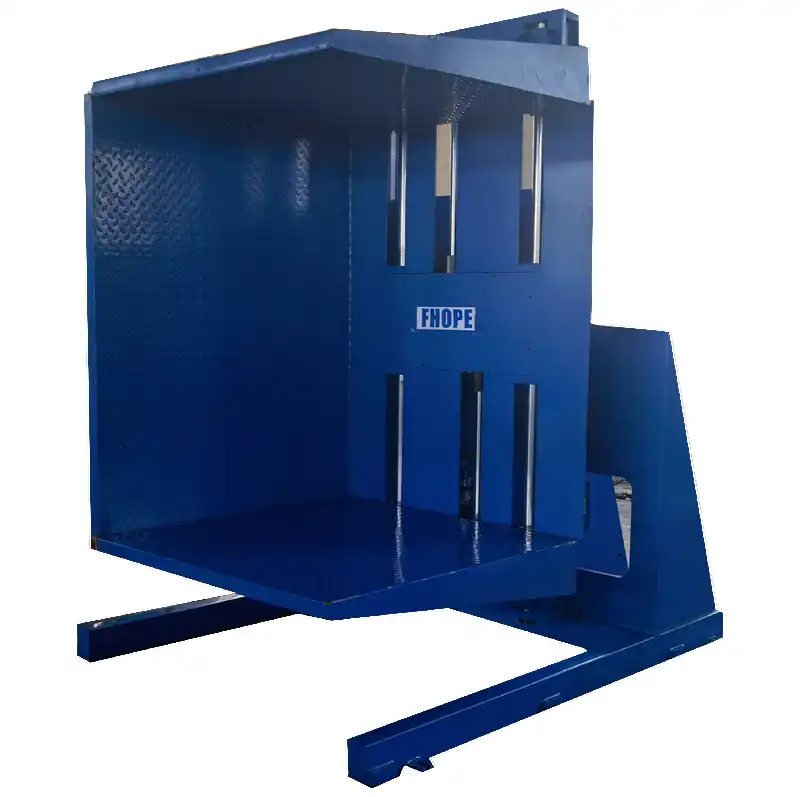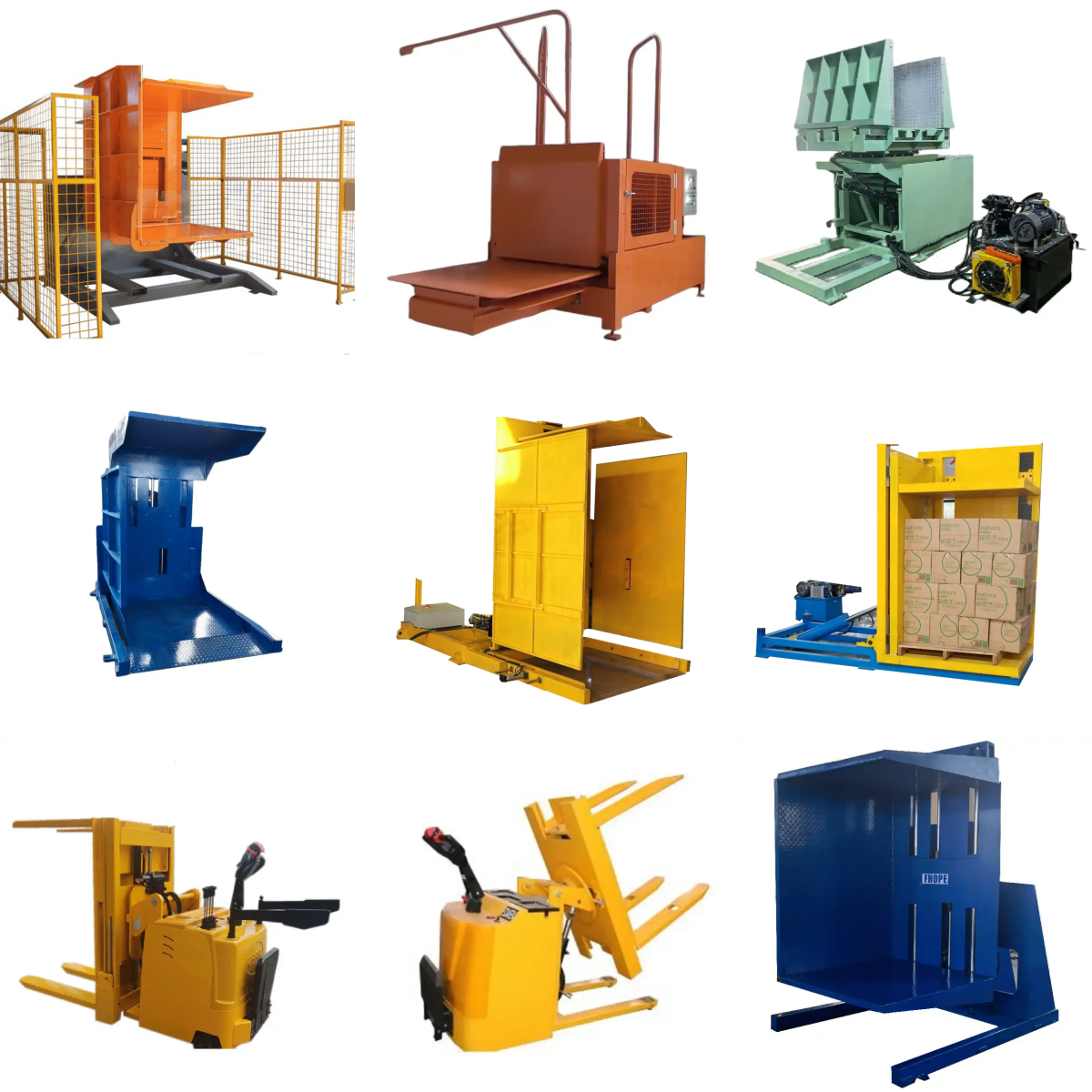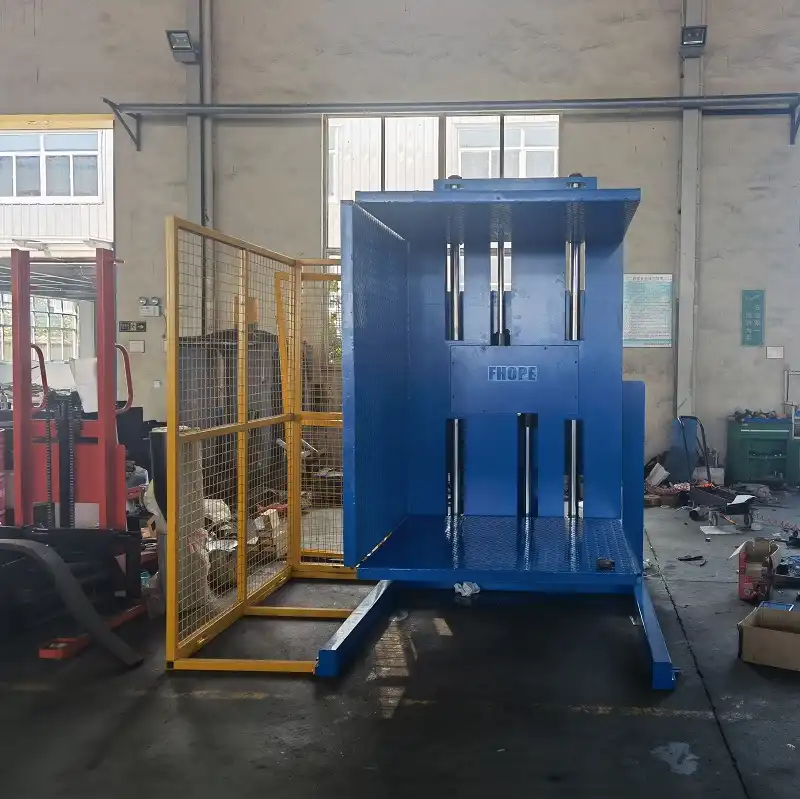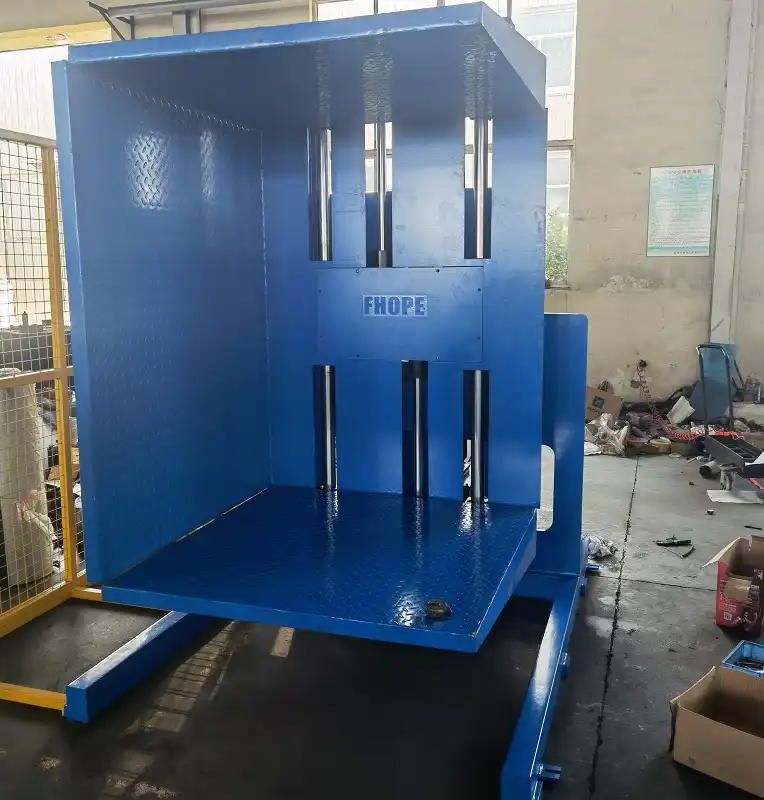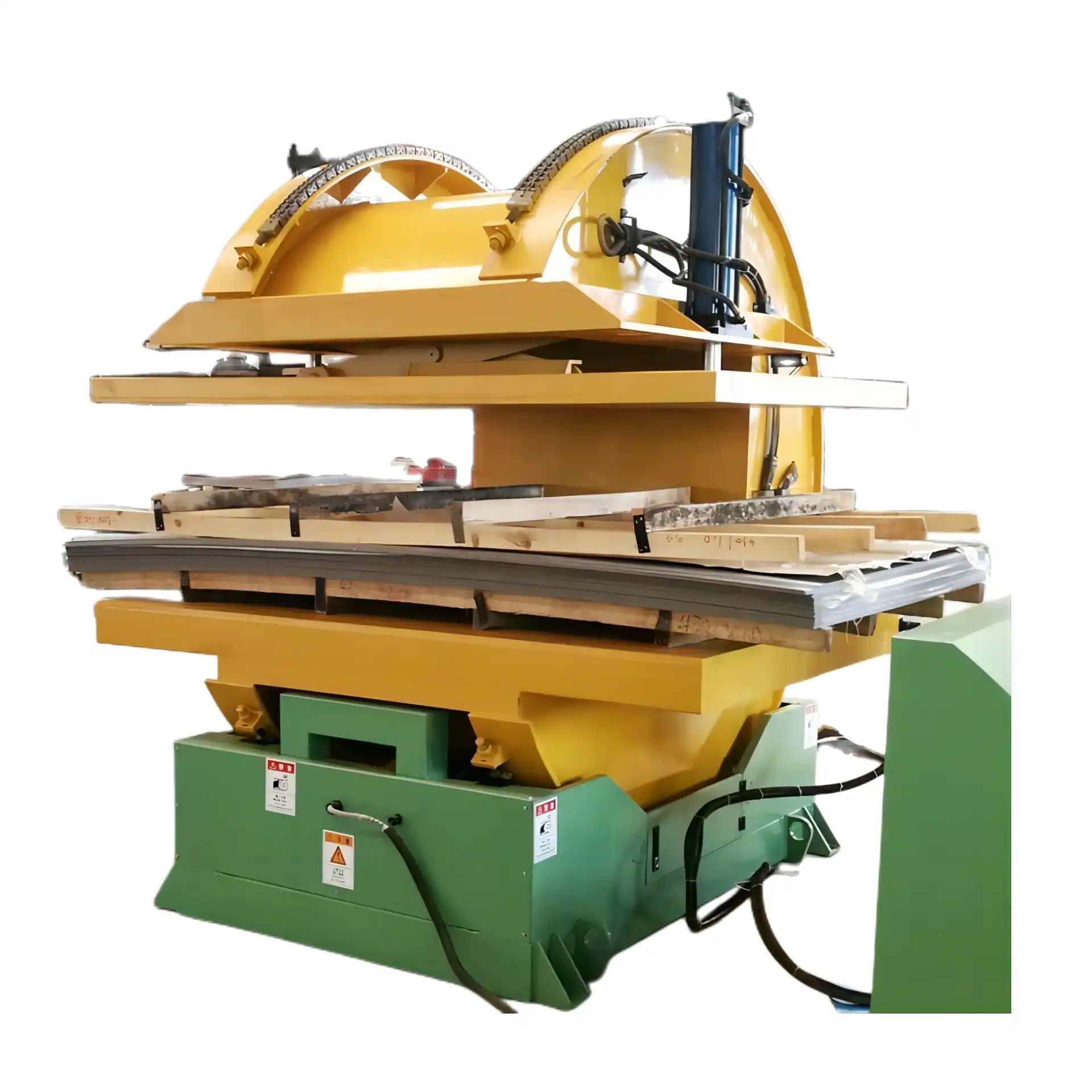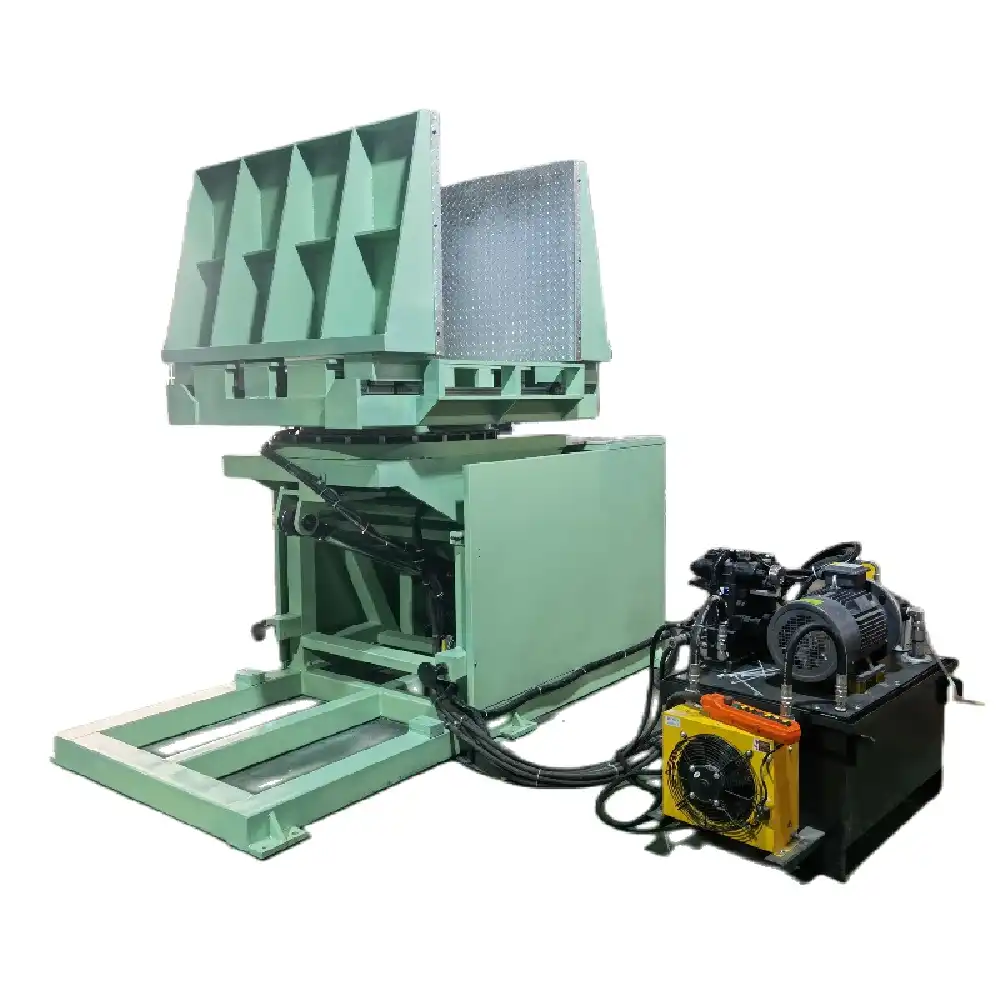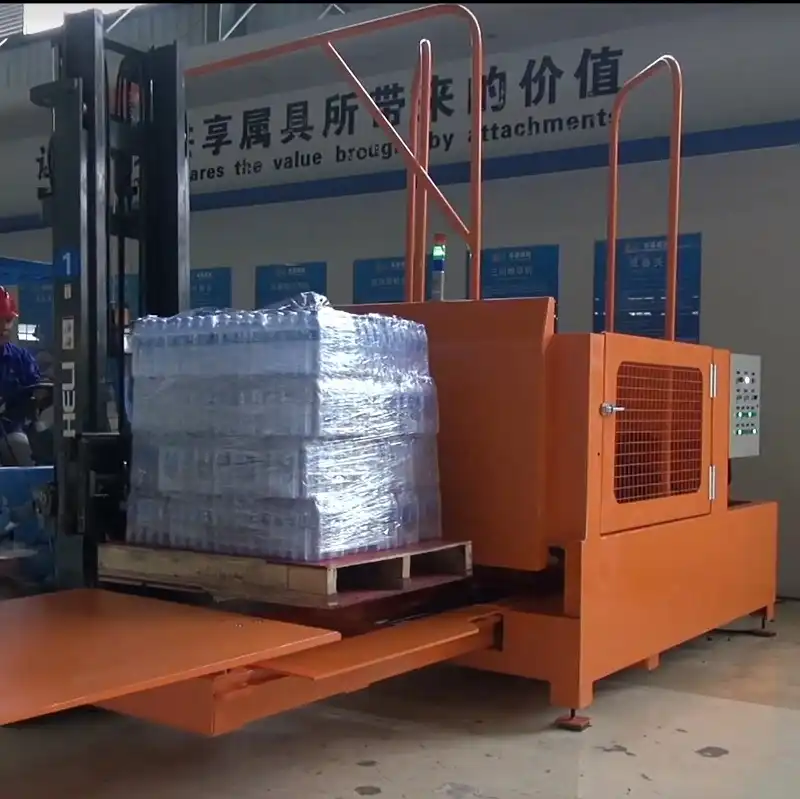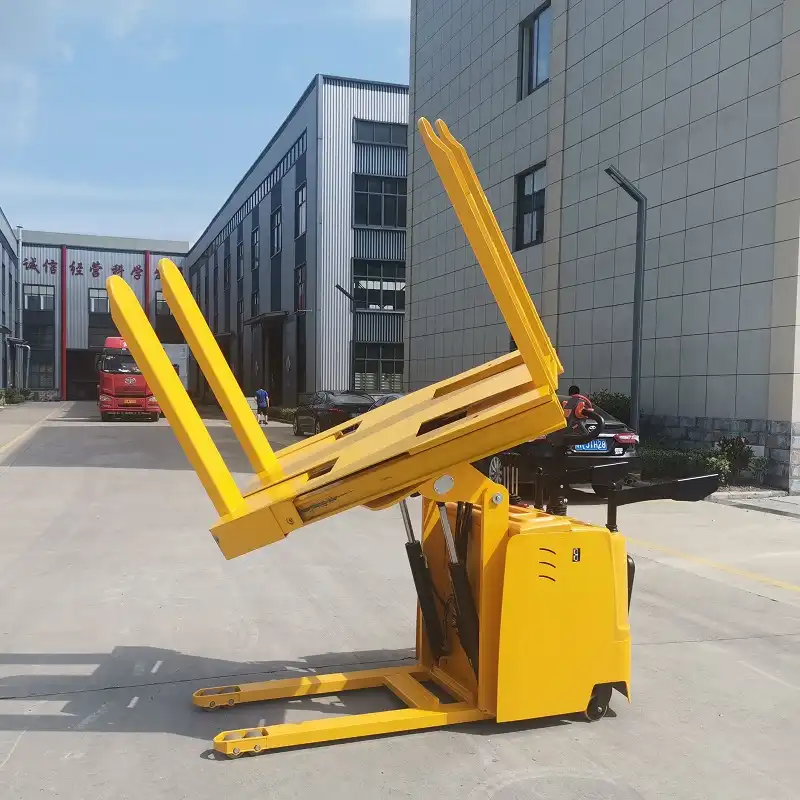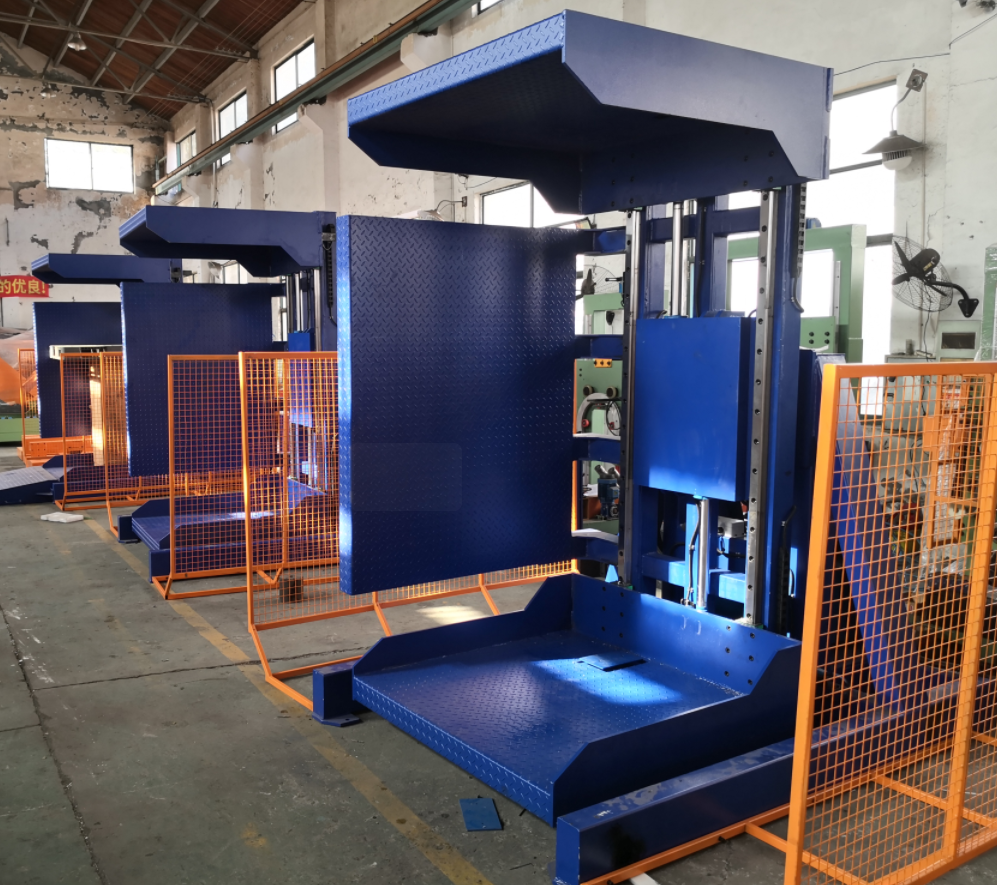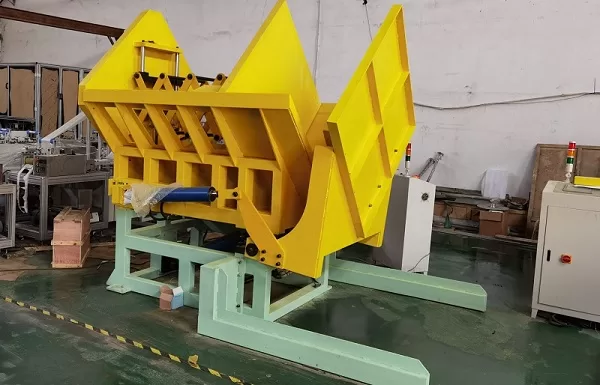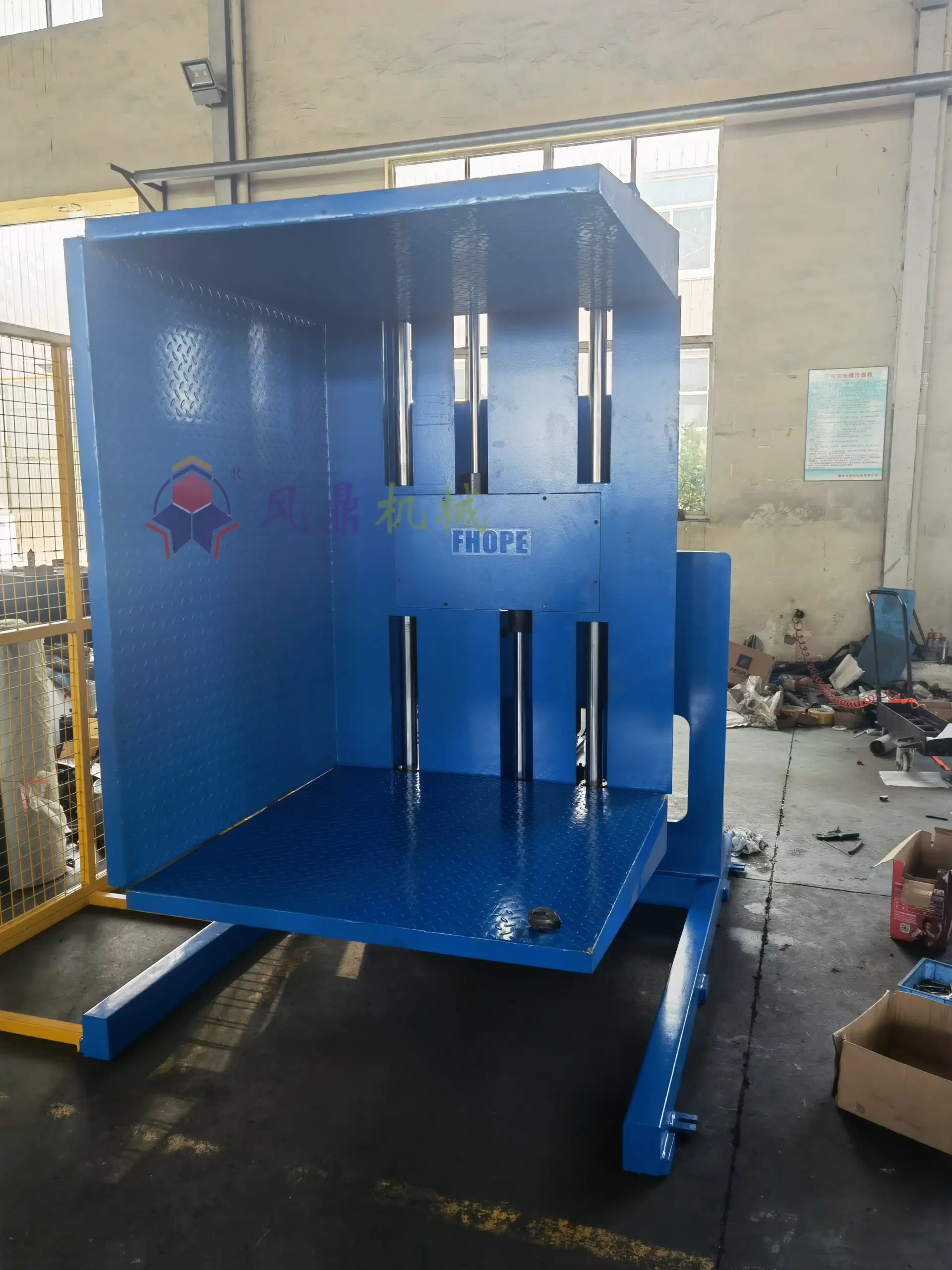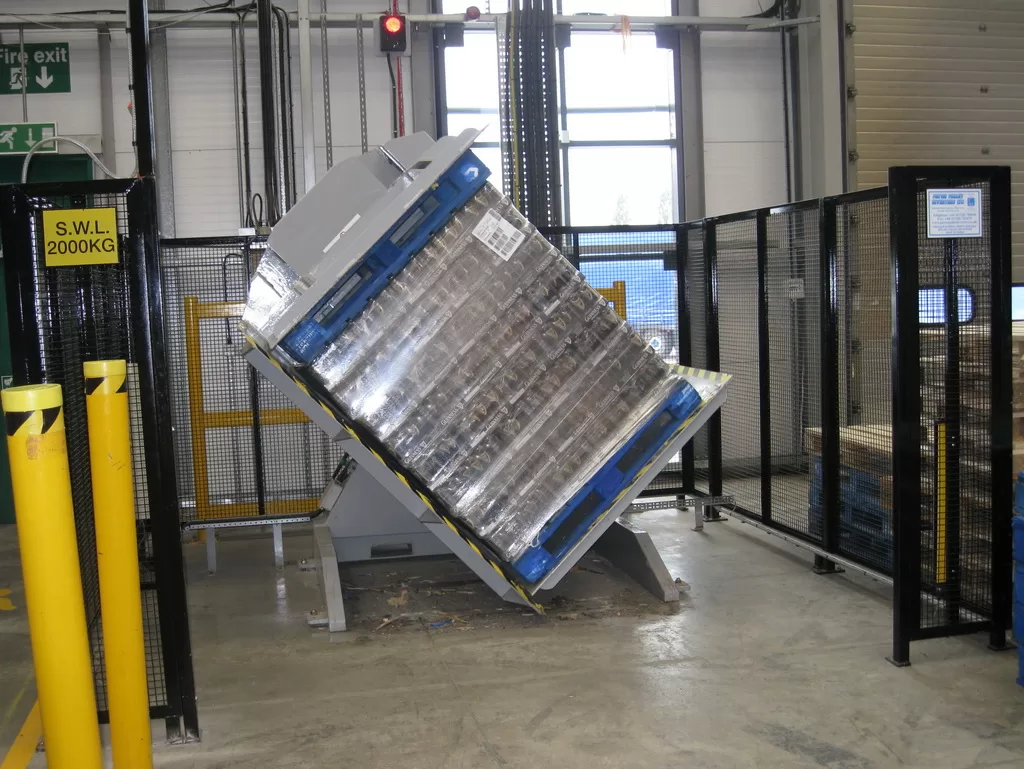Automatic Pallet Exchanger
The logistics industry is in the midst of a transformation, and at the heart of this shift lies one unsung hero: the automatic pallet exchanger. Every business handling heavy goods faces the challenge of managing pallets efficiently. With labor shortages and rising costs, this innovation promises not only to revolutionize operations but also to redefine cost-efficiency and workplace safety.
For years, businesses have relied on manual processes to exchange pallets, exposing workers to risks and slowing down productivity. Now, automatic solutions are offering a streamlined, safer alternative. This change isn't just about keeping up with technology; it’s about building resilience in a competitive landscape.
From warehouses to distribution hubs, embracing automation has never been more critical. Let’s explore how automatic pallet exchangers are becoming the cornerstone of modern logistics operations.
[claim] The automatic pallet exchanger isn’t just a tool; it’s a transformative investment driving productivity, safety, and scalability.
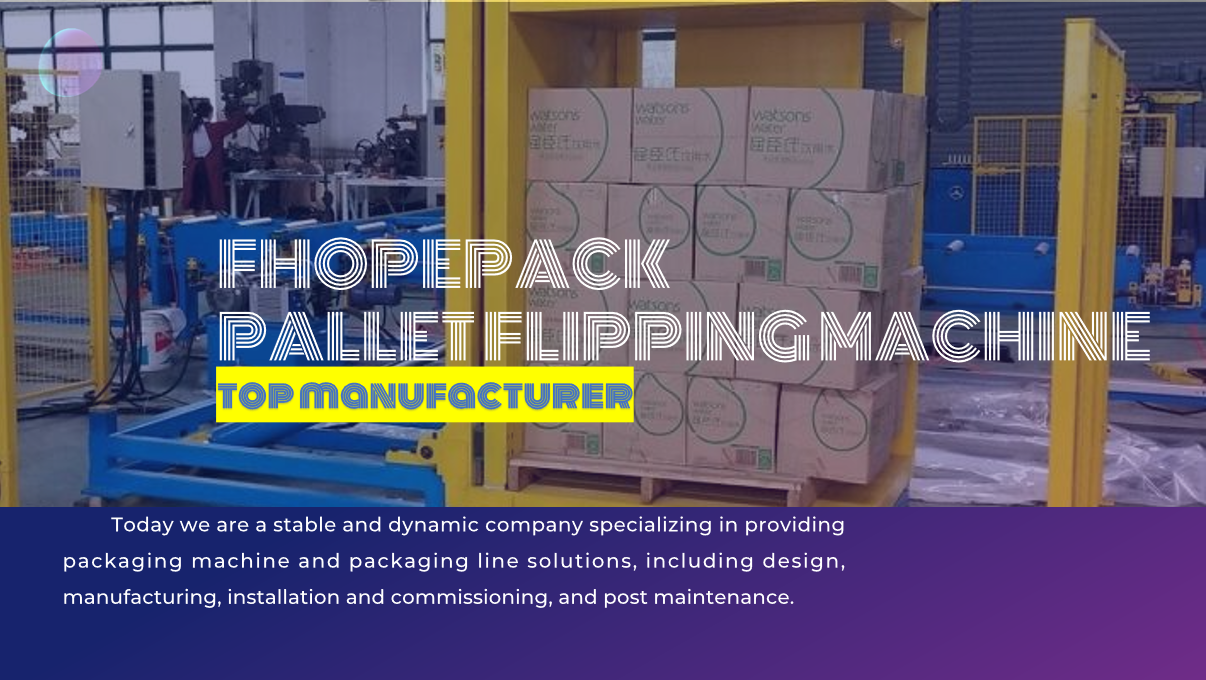
1. How does an automatic pallet exchanger redefine warehouse operations?
1.1 Enhancing speed and efficiency
In logistics, speed isn’t just a metric—it’s a competitive edge. The automatic pallet exchanger minimizes delays by streamlining the exchange process, enabling operators to handle hundreds of pallets daily without breaking a sweat.
Businesses with high-volume requirements, such as retail distribution or manufacturing plants, often face bottlenecks due to manual handling. Automating this step accelerates throughput and ensures consistent quality in operations, reducing operational downtimes caused by human errors or fatigue
1.2 Improving workplace safety
Safety is non-negotiable, yet traditional pallet handling can put workers at risk of injuries. From strained backs to pinched fingers, manual pallet exchanges come with hazards. Automatic systems eliminate these risks, using precision technology to handle even the heaviest loads effortlessly.
Workers can now focus on supervisory or value-driven tasks while the machine does the heavy lifting. This not only boosts morale but also significantly reduces workplace injury claims.
1.3 Beyond speed and safety: unlocking cost efficiency
Automation might seem like a hefty investment upfront, but consider the cumulative savings it offers. From fewer labor hours to reduced workplace incidents, the automatic pallet exchanger pays for itself by slashing costs where they matter most. Additionally, its minimal maintenance ensures consistent operation without frequent interruptions.
2. What industries benefit most from pallet exchangers?
2.1 Warehousing and distribution hubs
In industries where time is money, pallet exchangers are a game-changer. Warehousing facilities, particularly those dealing with fast-moving consumer goods (FMCGs), rely on seamless pallet exchanges to keep supply chains flowing.
In these settings, downtime equals lost revenue. Automatic pallet exchangers ensure a smooth handoff between pallets, improving productivity metrics across the board.
2.2 Food and pharmaceutical industries
Hygiene and compliance are critical in food and pharmaceutical sectors, making pallet exchanges a necessary step in the supply chain. By swapping out wooden pallets for sanitary plastic ones, automatic exchangers help maintain industry standards while protecting sensitive goods from contamination.
With traceability and clean operation at the forefront, these systems allow businesses to meet stringent regulations without adding extra layers of complexity.
2.3 Heavy industries and manufacturing
In manufacturing, handling heavy or awkward loads requires precision and reliability. Pallet exchangers tailored to handle steel, concrete, or other heavy-duty materials bring both efficiency and safety to production lines.
They’re not just for swapping pallets; they support strategic workflows, making heavy material handling faster and more predictable.
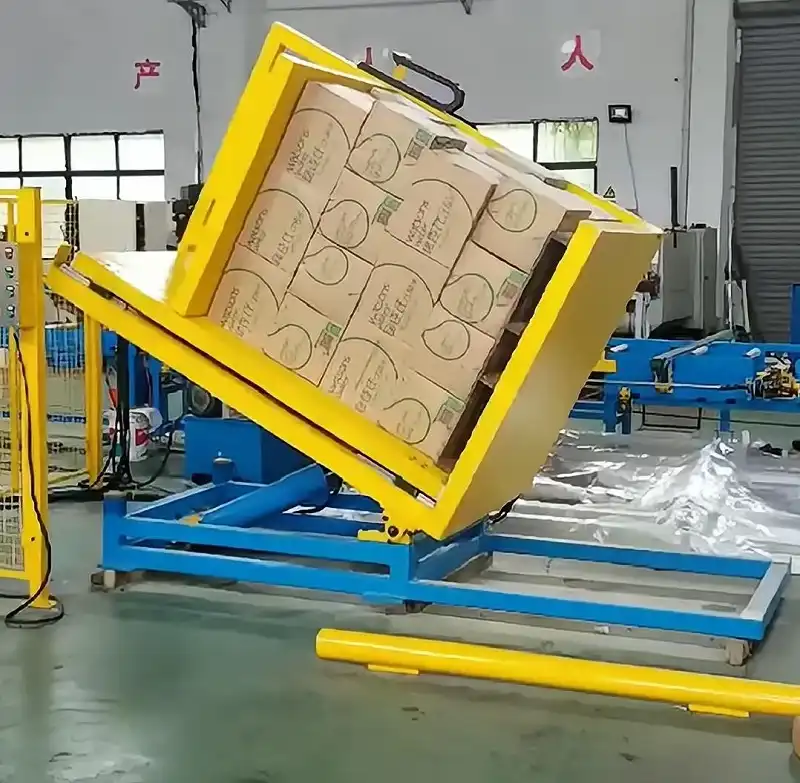
3. What key features should you look for in a pallet exchanger?
3.1 Adaptability for various pallet types
Not all pallets are created equal. From standard wooden pallets to specialized plastic or aluminum ones, businesses often work with a diverse range of pallet materials. An effective automatic pallet exchanger should be adaptable enough to handle all types seamlessly.
Adaptability ensures that businesses can use one machine across multiple operations without frequent modifications or add-ons. This flexibility minimizes downtime and keeps workflows consistent, even when switching between materials.
3.2 User-friendly controls for seamless integration
Sophistication doesn’t have to mean complexity. Modern automatic pallet exchangers come with intuitive control panels and programmable options, making integration into existing systems effortless.
Look for systems that offer customizable presets to align with specific operational needs. This feature reduces the learning curve for operators and ensures quick setup, minimizing disruptions during deployment.
3.3 Energy efficiency and long-term cost savings
Energy consumption is a major factor when considering automated solutions. Advanced pallet exchangers are designed with energy-efficient motors and standby modes to conserve power during inactivity.
Beyond energy use, consider the longevity of the machine. Systems with durable components and minimal maintenance requirements provide the best return on investment over time. While upfront costs may be higher, energy-efficient and durable models help businesses achieve long-term financial benefits.
4. Why is adopting automation essential for long-term competitiveness?
4.1 Meeting customer expectations
Customer demands are evolving, and businesses that fail to meet these expectations risk falling behind. Automation isn’t just a trend; it’s an operational necessity for companies aiming to deliver speed, accuracy, and reliability.
Automatic pallet exchangers, for instance, cater to customers’ increasing need for quick turnarounds and precision in product handling. Faster exchanges mean faster shipping, resulting in happier clients and stronger business relationships.
4.2 Building resilience in uncertain times
The pandemic and other global disruptions have underscored the importance of resilient supply chains. Automation provides a buffer against labor shortages and fluctuating demand by ensuring consistent output regardless of external pressures.
With an automatic pallet exchanger, businesses can scale operations up or down quickly, depending on market demands, while maintaining efficiency.
4.3 Staying ahead of competitors
Automation is no longer a differentiator; it’s a standard. Companies adopting cutting-edge technologies like automatic pallet exchangers gain a competitive advantage by positioning themselves as industry leaders.
Early adopters benefit from reduced costs, improved brand reputation, and streamlined operations, leaving their competitors struggling to catch up.
Conclusion
Adopting an automatic pallet exchanger is more than an operational upgrade; it’s a strategic decision that impacts safety, efficiency, and long-term growth. Whether you’re in warehousing, food processing, or heavy manufacturing, the benefits of this technology are undeniable.
[claim] Businesses that embrace automation today are poised to lead tomorrow’s logistics landscape. Don’t wait—invest in the future of operational excellence now.
